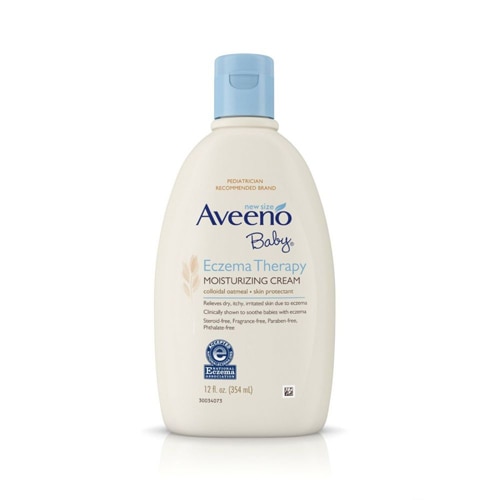Compact mini fridges are all the rage, and the hype may have you wondering: Should I refrigerate my skincare products? Especially with summer ahead, the idea of keeping your (often expensive!) serums, creams and lotions tucked away in a safe, cool environment sounds like it might be a wise thing to do. But are there any real benefits to refrigerating your beauty supplies? Here,
Dr. Andrea Suarez, a Houston, Texas-based board-certified dermatologist, offers some insight.
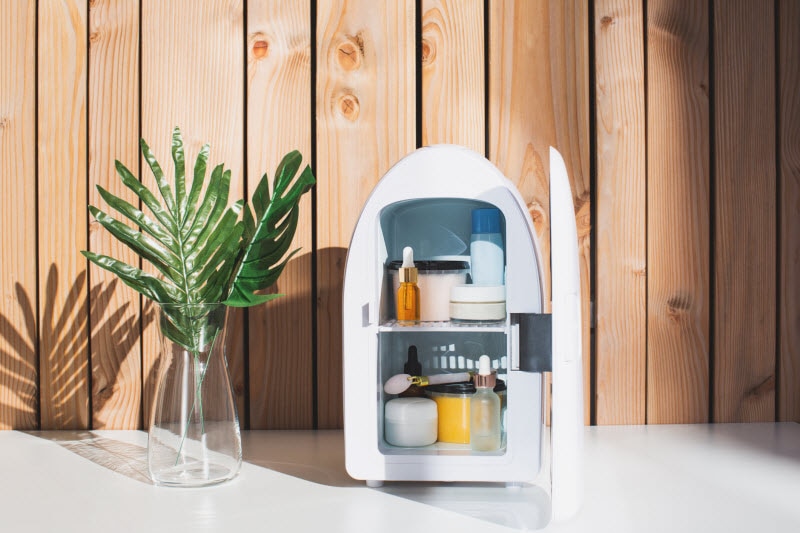
What skincare products should be refrigerated?
1. Eczema products
According to the
National Eczema Association, cooling some skincare products before use on irritated skin can help further calm inflammation and decrease itch hormones.
"If you have any kind of itchy skin condition, if you apply chilled product, it’s even more effective in terms of its anti-itch effect,” Suarez says. “What happens is that the cold sensation can actually distract nerves in the skin that release those itching signals.”
Suarez notes that it’s not necessary, though it can be helpful, to store eczema products in the refrigerator. Alternately, you can simply cool them for a few hours before use to achieve that chilling effect. Note that emollient creams are OK to refrigerate, per the
National Eczema association’s guidelines, but you should not refrigerate emollient
ointments.
Try this: Eczema Honey’s Skin-Soothing Cream, which can be stored in the fridge, blends hydrating beeswax and honey with olive, almond and sunflower oils to create a deeply nourishing salve which is not only safe to use for those with eczema but can also be applied on other grating skin issues such as dermatitis or rosacea, as well as sunburns, rashes or very dry, flaky skin.
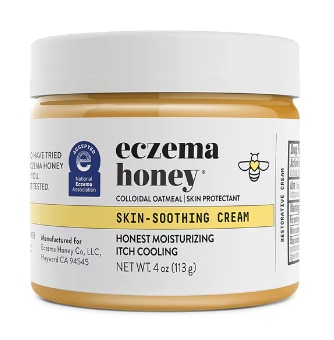
2. Natural skincare products
Although they’re shelf stable, some natural skincare products may have a shorter shelf life because they are made without preservatives. In theory, Suarez notes, refrigerating these products may help extend their longevity, helping to slow the degradation of ingredients.
“Without preservatives, you run the risk of bacterial contamination as the product ingredients are more susceptible to degradation,” Suarez says. “When ingredients degrade, they’re useless and they can even be irritating and problematic.”
Refrigeration can slow down the degradation of active ingredients, particularly antioxidants, as well as helping to keep natural preservatives functioning at their best, which can result in products maintaining efficacy for a longer period of time.
If you choose to refrigerate your natural skincare products, it’s still a good idea to be mindful of expiration dates. Products won’t last indefinitely just because they’re refrigerated.
“Products have a little label on them with a number and the letter M,” Suarez says. “The number is the number of months after opening the product that it is good for. Always pay attention to that.”
She recommends using a calendar to keep track of when your products expire.
Try this: MyChelle Dermaceuticals’ Brighten Perfect C Serum contains a powerful trifecta of antioxidants, including an impressive amount of vitamin C (17 %) and l-ergothioneine, an amino acid that may help prevent wrinkles and sun damage. It also contains
aminoguanidine HLC, which has been shown to alleviate changes in skin tissue of diabetic patients, protecting collagen fibers by inhibiting the glycation process, hence reducing the signs of aging.
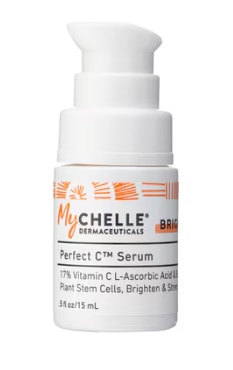
3. Eye creams
It’s well known that
applying cool compresses around and under the eyes can lessen inflammation and swelling by reducing blood flow. This practice may also reduce redness and flushing, especially after you exercise or spend time outdoors in the sun.
“If you apply chilled creams to the eyes, they have a better vasoconstriction ability,” Suarez says. “So they can actually clamp down on the little blood vessels in the skin around your eyes and help shift fluid out of that area and reduce puffiness. Plus, it feels nice.”
Try this:
Mill Creek’s Botanicals Aloe Vera Soothing Gel features 99% aloe vera, plus cooling cucumber, comfrey and allantoin to assist in the recovery of sun damage after exposure to UV rays. Hydrating and quick absorbing, it’s the perfect product to apply chilled when you need to cool down quickly or relieve a hot, itchy sunburn. It can also be used to moisturize dry skin or help calm minor skin irritations such as insect bites.
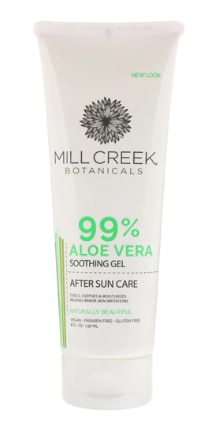
4. Vitamin C products
Vitamin C, also known as ascorbic acid, is an unstable compound because it is easily oxidized. This means it reacts readily with oxygen in the air when exposed to heat, light or certain metals, leading to its degradation and loss of potency. However, keeping it cold or even frozen can help retain both its stability and potency, according to a
2021 study in the Journal of Food Composition and Analysis.
“Another product that you could certainly consider and is often advised to store in the refrigerator is vitamin C serum,” Suarez says. “Many manufacturers will actually advise this, to help reduce the level of degradation overall.”
Due to its instability, vitamin C is often paired with other ingredients that may not always respond well to long-term cold storage. So before tossing your vitamin C serum in the fridge, check to see if it is pure, water-based ascorbic acid, or if it contains ingredients, such as oils, which could separate and ruin the product.
Try this: Clara's New York Brightening Vitamin C Facial Serum combines vitamins C and E for a powerful antioxidant duo to protect skin from UV rays and environmental pollution. Vitamin E neutralizes free radicals, preventing their harmful effects on skin cells. Vitamin C shields the skin from oxidative stress, plus it can help boost collagen, which plumps skin and helps prevent sagging. This protective serum contains up to 90% natural ingredients, so keeping this in the fridge will help maintain its integrity over time.
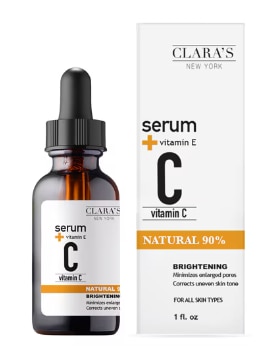
Big chill or big hype?
When it comes to cleansers, moisturizers and sunscreen, whether or not to refrigerate is up to you.
“There are extremes with everything,” Suarez says. “It’s not good for sunscreen to be in extreme temperatures, like a hot car, but that doesn't mean that you need to store it in the refrigerator. Just keep it at room temperature in a cool, dry place. It’s already protected from light in the packaging.”
Suarez advises keeping a small skincare journal to track products you use and expiration dates. And if you enjoy the cooling sensation, feel free to keep your favorite products like sheet masks, toners and eye creams – as well as skincare tools like jade rollers and gua sha stones – in the fridge.



